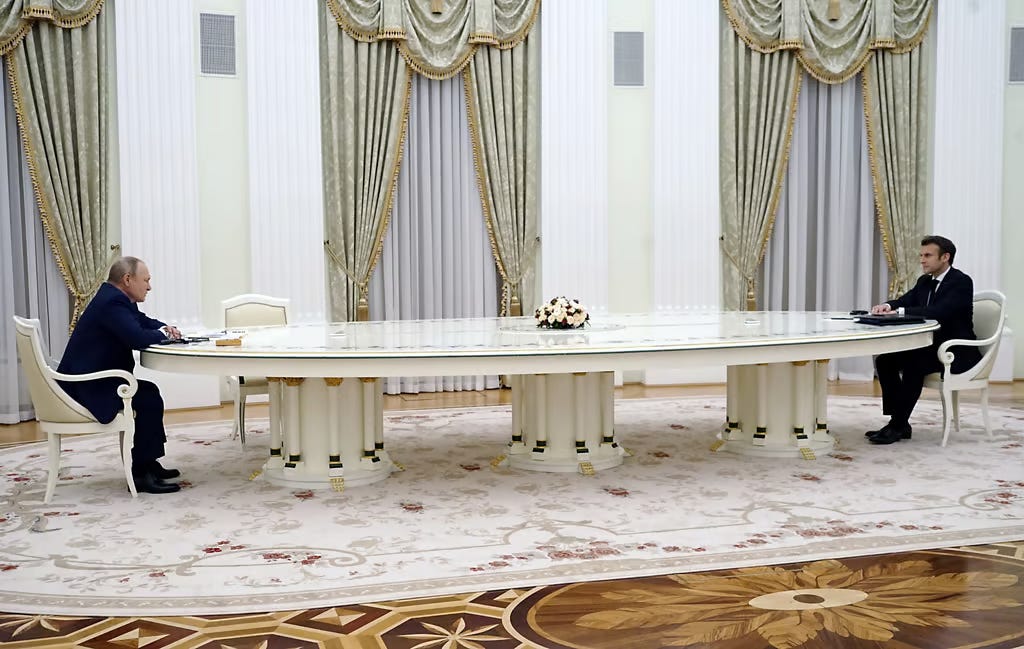Macron's Grandstanding is Counterproductive
French President raised a serious issue—how the West can do more to help Ukraine. But he did it in a way that undermined the Cause
Last week, French President Emmanuel raised a serious question: what more can the West do to help Ukraine? Sitting at a meeting with European leaders in Paris, he suggested the possibility that some countries might consider sending troops to help Ukraine. With Ukraine’s military effort faltering, and growing uncertainty whether desperately needed military aid would be approved by the US Congress, Macron’s suggestion was hardly out of left field.
Indeed, as I reported in my Politico column today,
Weeks earlier France’s Chief of the Defense Staff General Thierry Burkhard had written to half his NATO colleagues, exploring the possibility of a coalition of the willing to take over certain tasks from Ukraine—including manning defensive systems, training forces in country, launching cyber operations and offering help in demining.
The idea was to revisit an earlier decision by all NATO countries explicitly ruling out deploying troops in helping Ukraine to defend itself against Russian aggression—even though doing so would have been perfectly justified under article 51 of the UN Charter, which authorizes the use of force for self-defense. But every country was determined both to do what they could to help Ukraine and to avoid a direct confrontation with Russia, which could escalate to all-out, even nuclear war.
But telling your adversary what you are not willing to do often isn’t always smart strategy. You want to leave him in the dark, hoping to instill caution in his behavior. By revisiting that decision, the French President was trying to reinstate a degree of strategic ambiguity.
So far, so good.
But then Macron went public. Responding to a question on whether troops could ever be deployed, he stressed that “nothing can be ruled out.” He did admit that there was no consensus to send troops, but that was an understatement. When Macron raised it privately, no one had supported him. And as soon as he raised it publicly, everyone made clear they wouldn’t support it.
There is only one winner in this debate—Vladimir Putin, who couldn’t have believed his luck when divisions within the coalition supporting Ukraine spilled out in the open. But Putin, too, is a master and grandstanding, and immediately went overboard in his annual speech to the nation by threatening armageddon:
They have started talking about the possibility of sending NATO military contingents to Ukraine.
But we remember the fate of those who once sent their contingents to the territory of our country. But now the consequences for possible interventionists will be much more tragic. They must ultimately understand that we also have weapons - yes, they know about this, I just said - that can hit targets on their territory.
And everything that they are coming up with now, how they are spooking the whole world, - all this really threatens a conflict with the use of nuclear weapons, and therefore the destruction of civilization - they understand this, or what?
War is too serious a business for such grandstanding—by either side.



